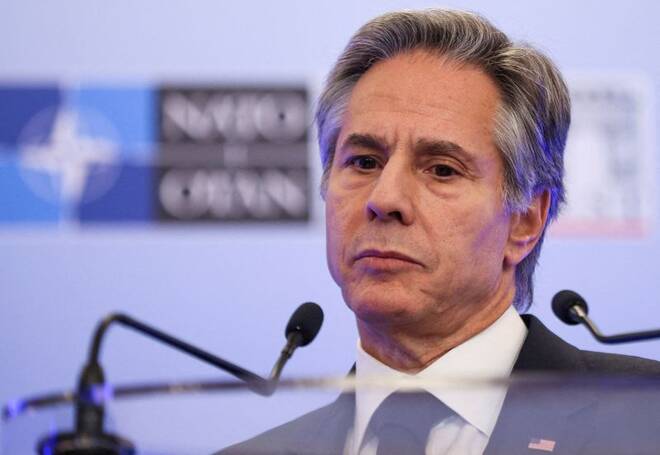Advertisement
Advertisement
Tax credits for EU electric vehicles dominate U.S. trade talks
By:
By David Lawder COLLEGE PARK, Md. (Reuters) - Top European Union officials intend to complain loudly to their U.S. counterparts at a trade meeting on Monday about the bloc's electric vehicles being cut off from tax credits in U.S. President Joe Biden's signature climate law.
By Andrea Shalal and David Lawder
COLLEGE PARK, Md. (Reuters) -The United States and the European Union on Monday cited progress addressing EU concerns about a U.S. climate law that would cut off the bloc’s electric vehicles from U.S. tax credits, but failed to resolve the matter.
They issued a joint statement after the third ministerial-level of the U.S.-EU Trade and Technology Council (TTC) vowed to work constructively to resolve it.
“We acknowledge the EU’s concerns and underline our commitment to address them constructively,” the statement said, taking note of progress made by a task force set up to address the dispute.
EU Trade Commissioner Valdis Dombrovskis on Monday called the $430 billion U.S. Inflation Reduction Act discriminatory and urged steps be taken before year’s end to modify the law. It offers consumers tax credits of $7,500 for new purchases of Tesla, Ford and other North American-made EVs that the EU fears will significantly hurt European.
U.S. Secretary of State Antony Blinken said the council had enabled both sides – which account for a combined 40% of global economic output – to make “practical, concrete progress” on key issues, including countering Russia’s war in Ukraine, and said he was confident the tax credit issue could be resolved.
“We all emerged from these meetings convinced that this is a very positive, productive way forward for both the European Union and the United States,” he said after six hours of meetings on the University of Maryland campus in College Park, near Washington, D.C.
Dombrovskis told the broadcaster Deutsche Welle before the meeting that the new U.S. law threatened to undermine progress made by the year-old transatlantic forum in repairing trade ties between the United States and the 27-member EU.
“With all our discussions, we are in a sense making a step forward, but with the Inflation Reduction Act we’re making two steps backwards, so we need to reconcile it,” he said, although he told reporters afterwards he felt “slightly more optimistic.”
One source familiar with the talks said the task force was racing to reach a deal before some of the measures kick in next year. Other participants included U.S. Commerce Secretary Gina Raimondo, U.S. Trade Representative Katherine Tai and European Commission Vice President Margrethe Vestager.
During a state visit to Washington last week, French President Emmanuel Macron told broadcaster CBS it was a “job killer” for Europe.
U.S. President Joe Biden told Macron in Washington that there could be “tweaks” to the law to make it easier for European countries to participate in the credits, but it remains unclear how that will be accomplished.
French officials said they are hopeful an executive order from the White House could give European countries a break, without the need for revisions from Congress, a move the White House wants to avoid.
The law has also drawn criticism from South Korean officials.
The TTC focused in its first two meetings on regulatory cooperation and presenting a united front against China’s non-market economic practices.
On Monday, officials agreed on a “joint roadmap” to assess trustworthy artificial intelligence technologies and set up a task force to reduce research barriers related to quantum computing science and technology.
They also agreed to support connectivity projects in Jamaica and Kenya, with an eye to expanding such work in other third countries, and pledged to boost transparency about public subsidies to the semiconductor sector going forward.
(Reporting by David Lawder and Andrea Shalal; Additional reporting by Foo Yun Chee in Brussels; Editing by Deepa Babington and Howard Goller)
About the Author
Reuterscontributor
Reuters, the news and media division of Thomson Reuters, is the world’s largest international multimedia news provider reaching more than one billion people every day. Reuters provides trusted business, financial, national, and international news to professionals via Thomson Reuters desktops, the world's media organizations, and directly to consumers at Reuters.com and via Reuters TV. Learn more about Thomson Reuters products:
Advertisement
